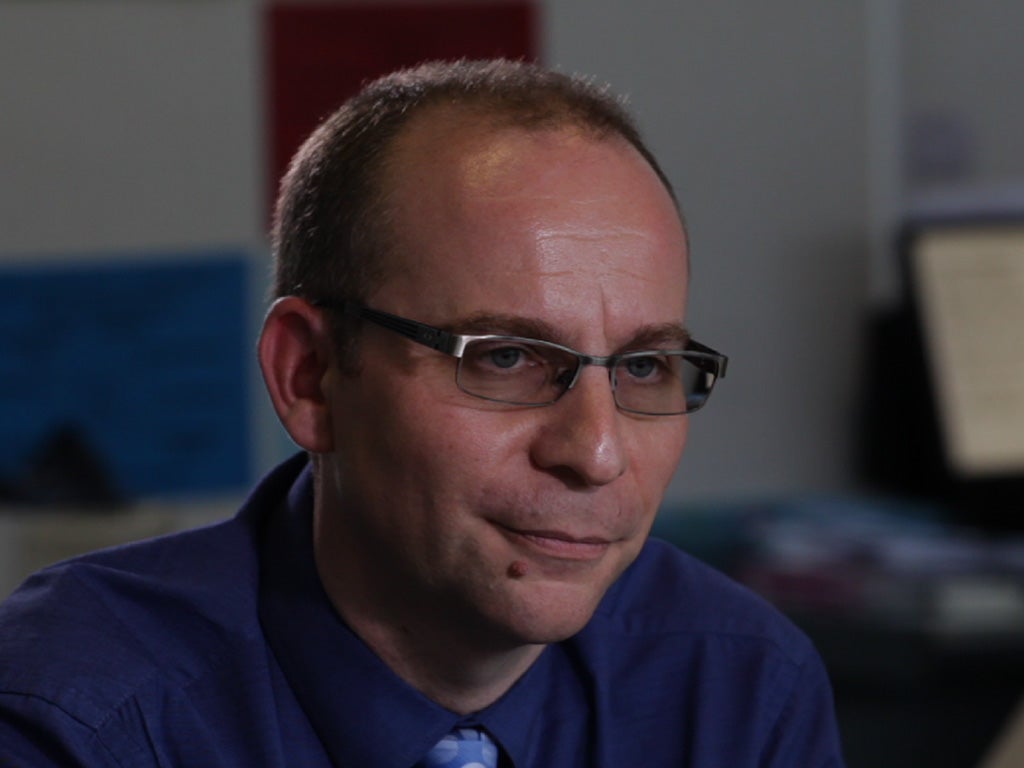The science of switching to a career in teaching
Neil Simpkins's new life in the classroom has fulfilled his ambition to focus on physics and encourage the next generation to get involved in the subject

Your support helps us to tell the story
From reproductive rights to climate change to Big Tech, The Independent is on the ground when the story is developing. Whether it's investigating the financials of Elon Musk's pro-Trump PAC or producing our latest documentary, 'The A Word', which shines a light on the American women fighting for reproductive rights, we know how important it is to parse out the facts from the messaging.
At such a critical moment in US history, we need reporters on the ground. Your donation allows us to keep sending journalists to speak to both sides of the story.
The Independent is trusted by Americans across the entire political spectrum. And unlike many other quality news outlets, we choose not to lock Americans out of our reporting and analysis with paywalls. We believe quality journalism should be available to everyone, paid for by those who can afford it.
Your support makes all the difference.Many of life's questions can be explained by physics," says Neil Simpkins, 44, revealing an obvious passion for the subject. A teacher at John Cabot Academy in Bristol, Neil says he wants his students "to know everything I know".
"For instance, just the other day, I was explaining how lightning works," he says. "I believe that by being a good teacher, I can help my students understand and appreciate how physics is central to understanding the universe around us."
Neil was tempted into the classroom after 19 years in industry. "I worked in a laboratory, formulating and testing printing inks for the packaging industry. It was a chemistry-based job, but the testing used physics-based techniques." Ready for a change, he took his postgraduate certificate of education (PGCE) at Bristol university in 2011-12 and specialised in physics. "When I first went to university for my BSc, I studied chemistry, physics and astronomy. During this time, I found physics to be a stimulating, beautiful and exciting subject. I decided teaching would provide me with a platform to inspire children and get them to understand some of the most interesting and important ideas humans have ever had."
Today, there's a raft of opportunities for those interested in postgraduate teacher training - particularly those focusing on subject areas such as physics. They may be offered a subject knowledge enhancement (SKE) course programme, to top up subject knowledge and the Premier Plus service can provide one-to-one guidance and support throughout the application process. There is a range of scholarships and tax-free bursaries on offer. Graduates with a 2:1 or a 1st could receive a £25,000 scholarship or £20,000 tax-free bursary while training to teach subjects like physics.
For Neil, the transition into teaching felt natural. He was also involved in the Scout movement, and helped his son with school work. "Seeing his enjoyment of learning really fired up my motivation to switch careers and train to teach."
Now, industry experience only adds to that drive. "I teach things I've done," Neil explains. "That can help it seem more relevant and interesting for students. I'd advise anyone thinking of changing to a career in teaching to do it. This is the happiest I've ever been in employment."
To get into teaching and for support throughout the application process, sign up online or call the
Teaching Line on 0800 389 2500
Join our commenting forum
Join thought-provoking conversations, follow other Independent readers and see their replies
Comments